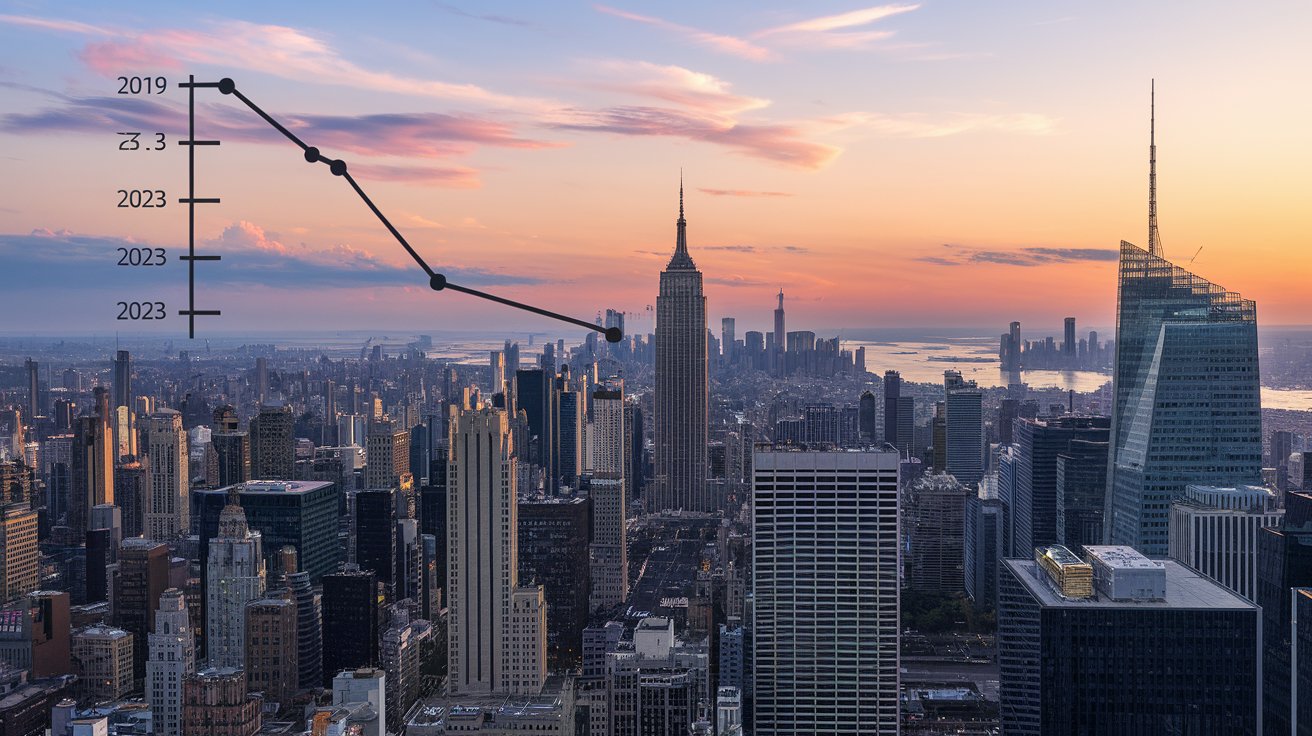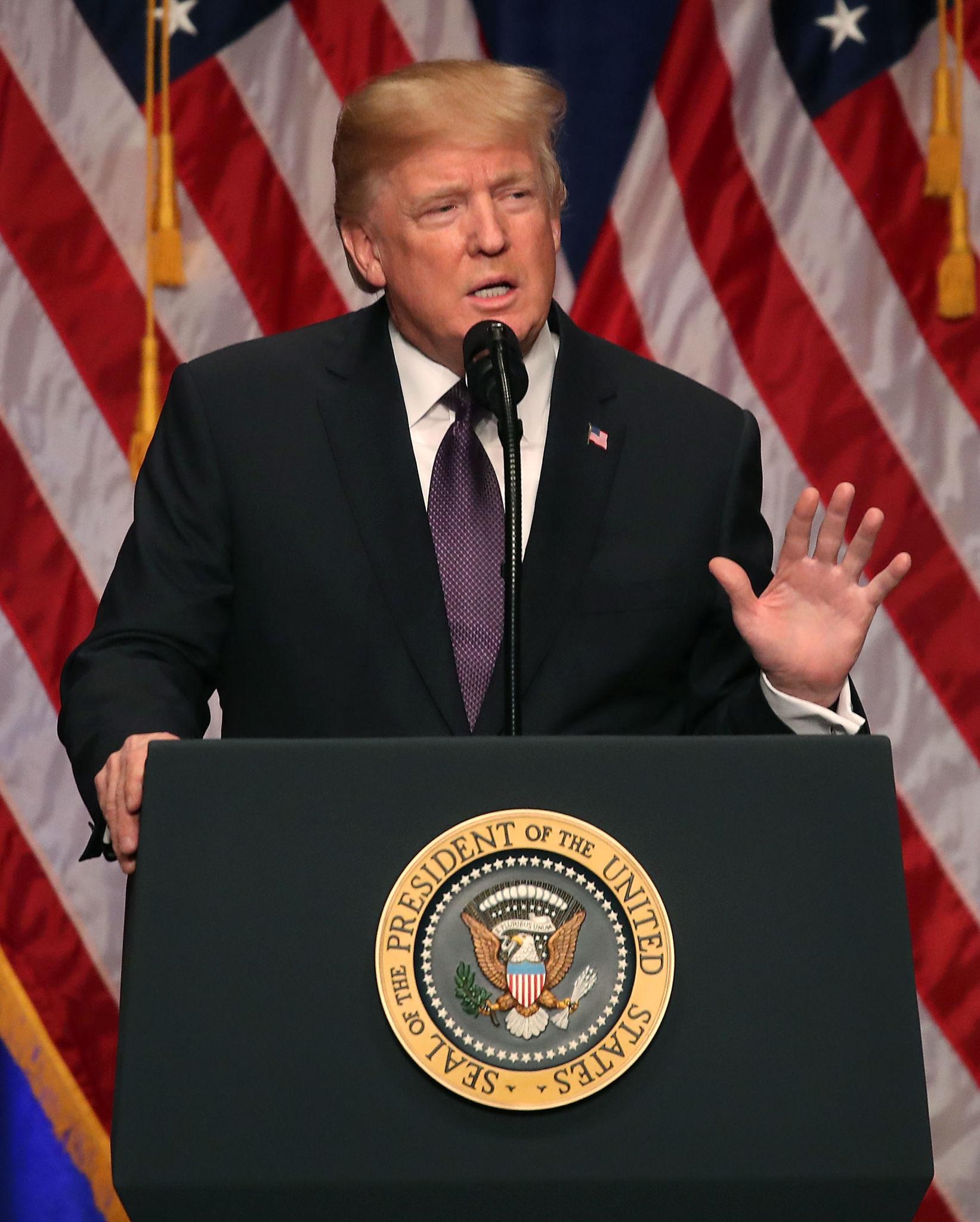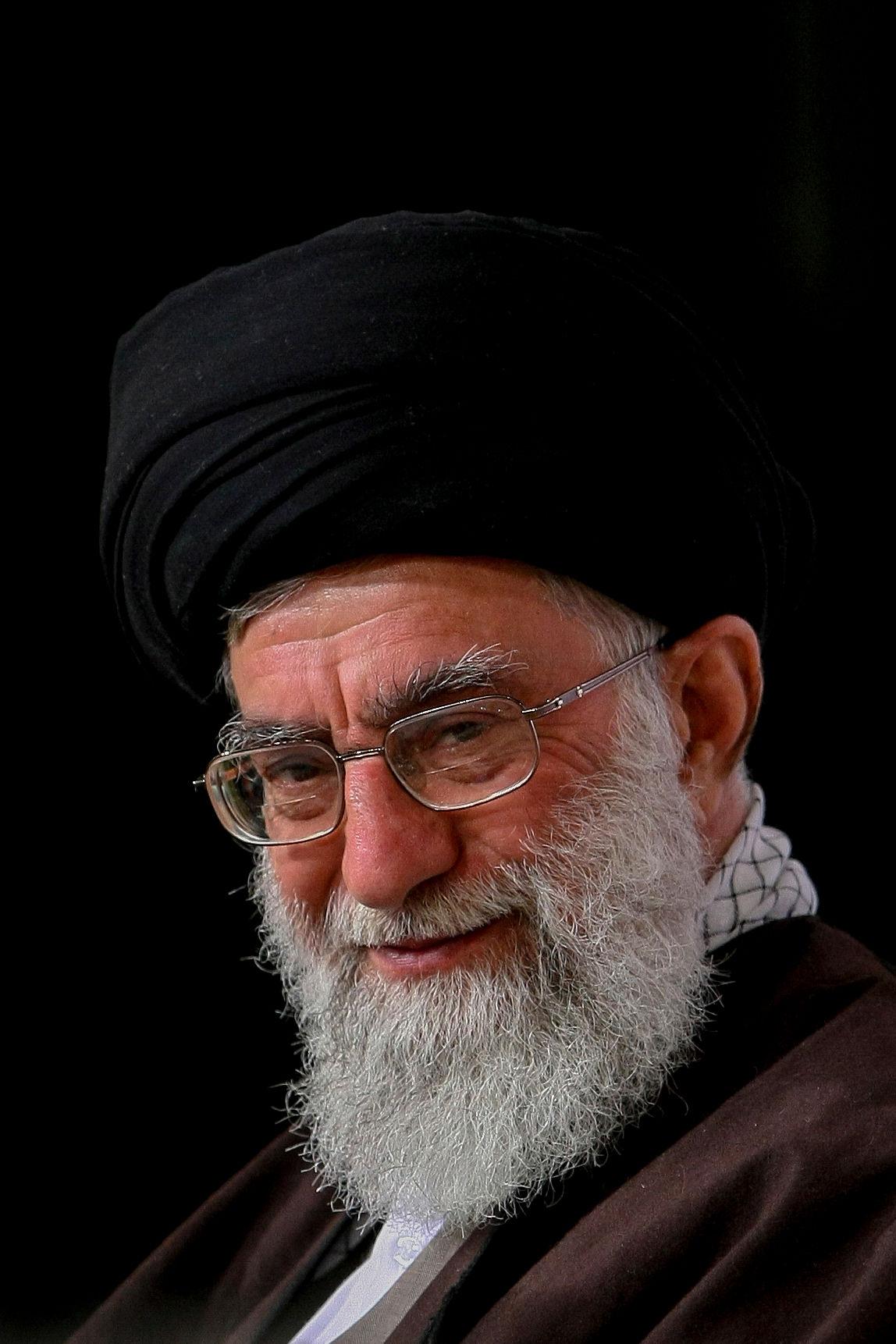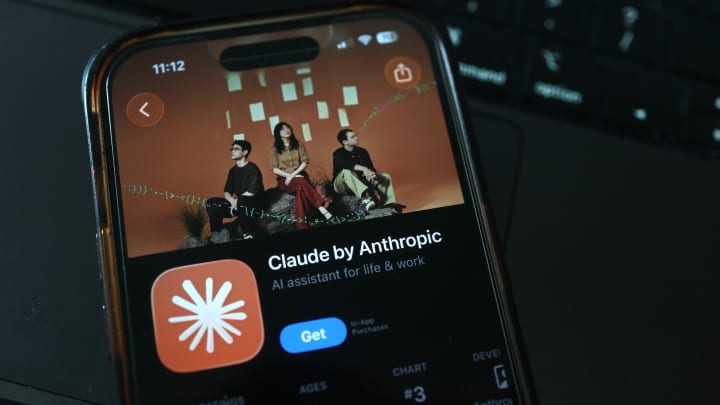America’s Fractured Trust in Science: Causes, Trends, and Solutions:
Public trust in science is facing unprecedented challenges in today’s rapidly changing world. Once regarded as an unwavering pillar of progress and innovation, science is now met with skepticism and doubt by a growing portion of the American public. From debates over climate change and vaccine safety to the rise of misinformation on social media, the erosion of trust in scientific institutions is more evident than ever. This growing divide threatens not only public health and policy but also the advancement of critical research that shapes our future.
Why has confidence in science declined so dramatically? Studies show that factors such as political polarization, media influence, and poor communication between scientists and the general public have contributed to this shift. In fact, a recent Pew Research Center survey found that only 57% of Americans believe science positively impacts society—down from 73% in 2019. This alarming trend underscores the urgent need to bridge the gap between the scientific community and the public.
Table of Contents
In this blog, we’ll explore the key reasons behind the declining public trust in science, examine the impact of misinformation and political influence, and provide actionable strategies to rebuild confidence. Whether you’re a concerned citizen, an educator, or a policymaker, understanding these insights is crucial in fostering a society that values and supports scientific progress. Keep reading to discover how we can collectively work towards restoring trust and ensuring science remains a guiding force in shaping our world.
Understanding the Decline in Trust
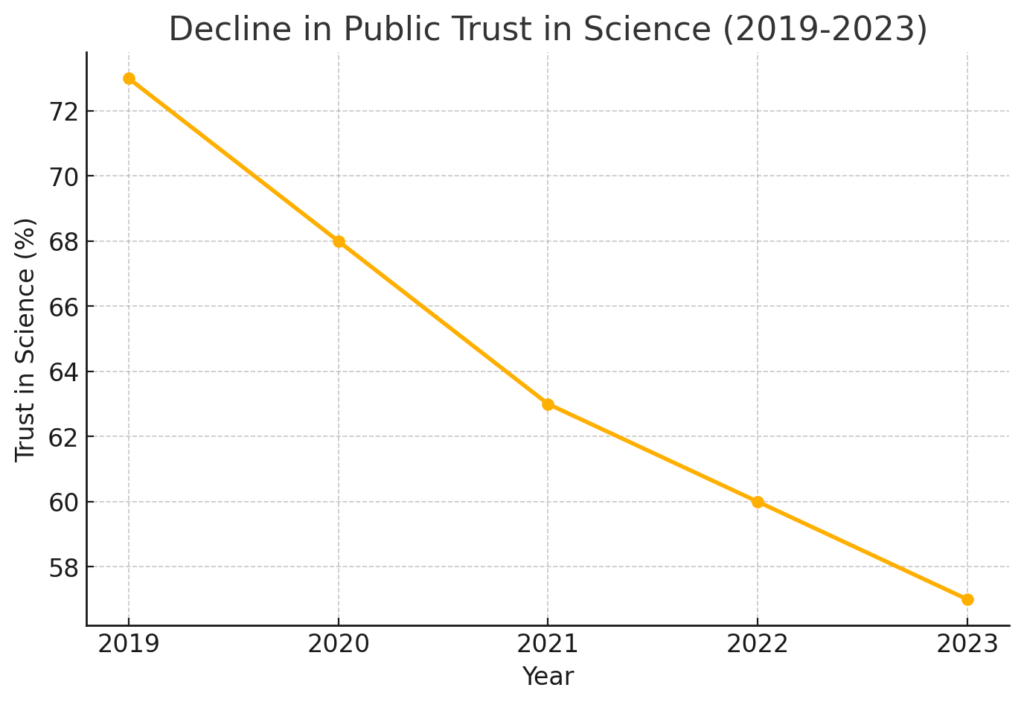
A 2023 survey by Pew Research Center found that only 57% of Americans believe science has a positive impact on society—down from 73% in 2019. This sharp decline signals a growing skepticism that could impact public health initiatives, climate change policies, and technological advancements.
Key Factors Behind the Decline:
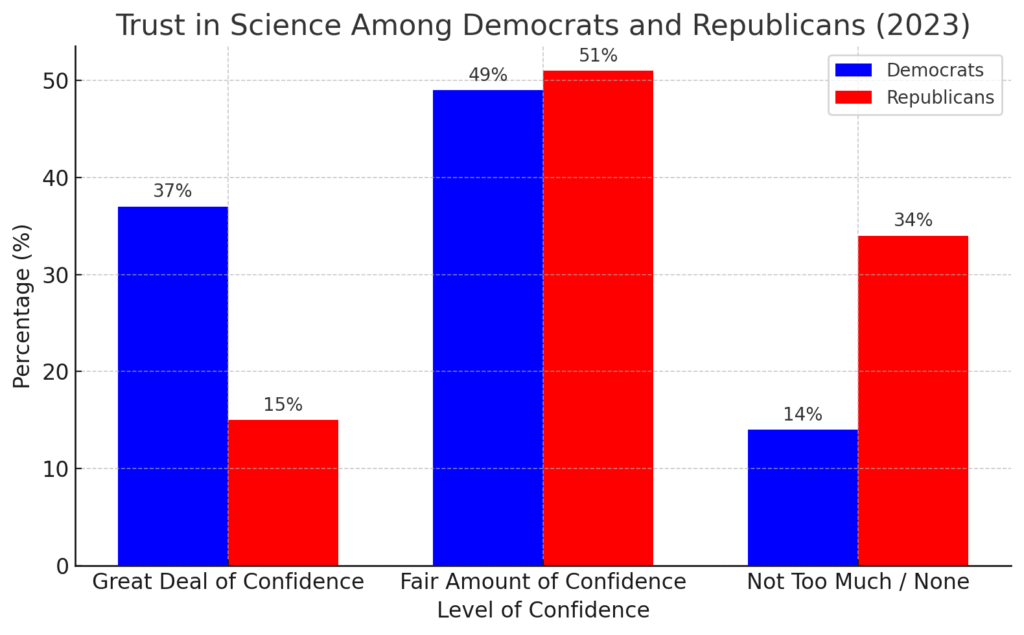
- Political Polarization:
- A significant divide exists along party lines, with 44% of Democrats expressing strong trust in scientists compared to just 15% of Republicans.
- Scientific issues like climate change and COVID-19 vaccines have become politically charged, leading to distrust.
- Misinformation and Media Influence:
- The rapid spread of misinformation on social media has contributed to public confusion and distrust.
- A study by Statista shows that 62% of Americans encounter misleading scientific information online weekly.
- Communication Barriers:
- Scientists often use complex jargon that the general public finds difficult to understand, leading to disconnects.
- Only 45% of Americans believe scientists are good at communicating findings in an accessible way.
Global Perspective: Trust in Science vs. U.S. Trends
While the U.S. has seen a decline in trust, global trends present a contrasting picture. A survey conducted across 68 countries revealed that 75% of respondents worldwide trust scientists and believe in their role in shaping policy decisions. This suggests that cultural and political dynamics in the U.S. significantly impact public perception.
Strategies to Rebuild Trust in Science
To address the growing skepticism, scientists, policymakers, and media outlets must work together to implement the following strategies:
- Transparent Communication:
- Scientists should simplify their messaging and provide clear, fact-based insights.
- Engaging with communities through public forums and Q&A sessions can help bridge the gap.
- Fact-Checking Initiatives:
- Government and private organizations should invest in fact-checking platforms to combat misinformation.
- Collaborations with social media platforms can help filter misleading content.
- Engaging with Younger Audiences:
- Educational institutions should introduce interactive science programs to build trust early in life.
- Platforms like TikTok and YouTube can be leveraged to share accessible scientific content.
- Diversifying Scientific Representation:
- Representation of scientists from diverse backgrounds can enhance relatability and trust among minority communities.
The Role of Media in Rebuilding Trust
Media outlets play a critical role in shaping public opinion. Journalists should prioritize accurate reporting and avoid sensationalizing scientific developments to maintain credibility. Encouraging balanced perspectives and featuring expert voices from various fields can also help rebuild trust.
In conclusion, rebuilding public trust in science is an ongoing challenge that requires a multifaceted approach. As we’ve explored, factors such as political polarization, misinformation, and communication gaps have contributed to declining confidence in scientific institutions. Addressing these issues demands transparency, effective public engagement, and proactive fact-checking to ensure that science remains a reliable and accessible resource for everyone.
By fostering better communication strategies, encouraging open dialogue, and promoting diverse representation, we can take meaningful steps toward restoring public trust in science. It’s crucial for scientists, media, and policymakers to work together in delivering accurate and relatable information that resonates with all communities.
Rebuilding public trust in science isn’t just the responsibility of researchers and institutions; it’s a collective effort that involves every individual seeking reliable information in today’s complex world. Start by questioning misinformation, supporting credible sources, and participating in science-driven discussions to make informed decisions.
Want to stay informed and be part of the change? Subscribe to our newsletter, share this article with your network, and let us know your thoughts in the comments below. Together, we can bridge the gap and ensure science continues to serve society in the best way possible. [USnewsSphere.com]


